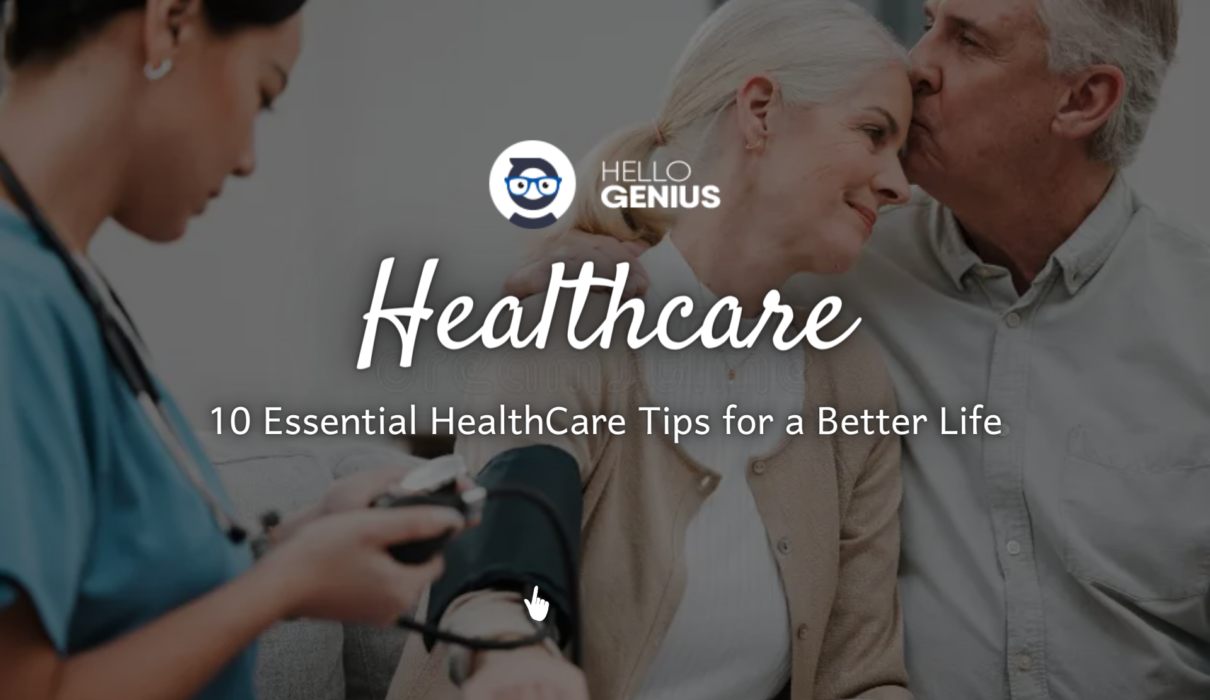Maintaining optimal health is a holistic and ongoing process that encompasses a variety of practices. Whether you’re looking to enhance your current lifestyle or embark on a new health journey, these essential healthcare tips can help you achieve a better quality of life.
1. Balanced Nutrition
A balanced diet rich in fruits, vegetables, whole grains, lean proteins, and healthy fats is crucial. Nutrients from these foods support bodily functions, boost the immune system, and promote overall well-being.
- Tip: Incorporate a rainbow of fruits and vegetables into your meals to ensure a variety of nutrients.
2. Regular Physical Activity
Engaging in regular exercise helps maintain a healthy weight, improves cardiovascular health, and strengthens muscles and bones. Aim for at least 150 minutes of moderate aerobic activity or 75 minutes of vigorous activity each week, along with muscle-strengthening exercises twice a week.
- Tip: Find an activity you enjoy, whether it’s walking, cycling, swimming, or yoga, to make exercise a consistent part of your routine.
3. Adequate Hydration
Staying hydrated is essential for maintaining body functions, including digestion, temperature regulation, and joint lubrication. The average adult should aim to drink at least 8 glasses (64 ounces) of water per day.
- Tip: Carry a reusable water bottle with you to ensure you can hydrate throughout the day.
4. Quality Sleep
Quality sleep is vital for mental and physical health. Adults should aim for 7-9 hours of sleep per night. Good sleep hygiene practices include maintaining a regular sleep schedule, creating a restful environment, and avoiding screens before bedtime.
- Tip: Establish a bedtime routine to signal to your body that it’s time to wind down.
5. Regular Medical Check-ups
Routine medical check-ups can help detect health issues early when they are most treatable. Annual physical exams, dental check-ups, and age-appropriate screenings (such as mammograms or colonoscopies) are crucial.
- Tip: Keep a record of your medical appointments and screenings to stay on top of your health.
6. Mental Health Care
Mental health is as important as physical health. Practices like mindfulness, meditation, and engaging in hobbies can reduce stress. Don’t hesitate to seek professional help if you experience persistent feelings of sadness, anxiety, or other mental health issues.
- Tip: Schedule regular ‘me time’ to engage in activities that relax and recharge you.
7. Avoiding Harmful Behaviors
Avoid smoking, excessive alcohol consumption, and recreational drug use. These behaviors can lead to serious health issues, including cancer, liver disease, and addiction.
- Tip: Seek support from healthcare providers or support groups if you need help quitting these habits.
8. Good Hygiene Practices
Maintaining good hygiene is essential to prevent infections and illnesses. Regular handwashing, dental hygiene, and personal cleanliness are foundational habits.
- Tip: Carry hand sanitizer for times when soap and water are not available.
9. Healthy Weight Management
Maintaining a healthy weight reduces the risk of chronic diseases such as diabetes, heart disease, and certain cancers. Combine a healthy diet with regular physical activity to achieve and maintain a healthy weight.
- Tip: Consult with a healthcare provider or nutritionist to develop a personalized weight management plan.
10. Social Connections
Strong social connections contribute to emotional well-being and can even improve physical health. Engage with friends, family, and community activities to build a supportive network.
- Tip: Schedule regular catch-ups with loved ones and participate in community or group activities.
Conclusion
Adopting these healthcare tips can lead to a better and healthier life. Remember, small, consistent changes in your daily routine can make a significant difference in your overall well-being. Prioritize your health by making informed choices and seeking professional advice when necessary.

